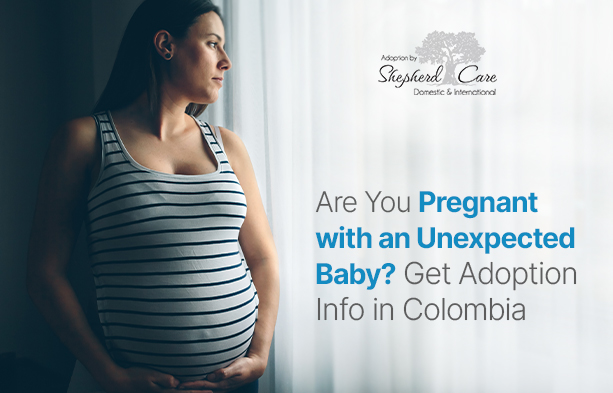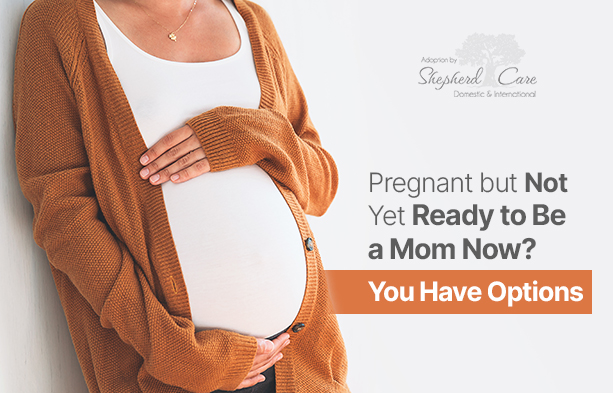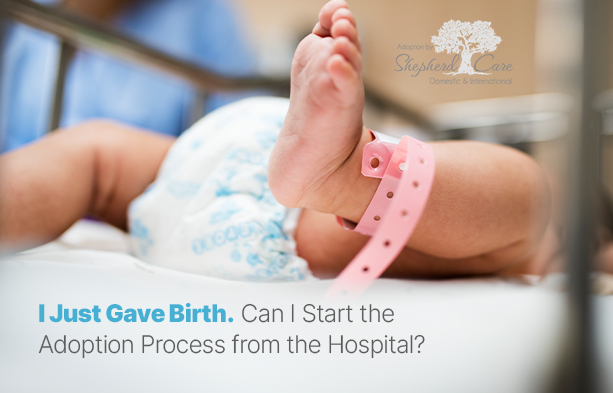If you’re a birth parent considering adoption for your baby, it’s vital to understand the emotional journey you may have before and after the adoption process. This article will guide you through the rollercoaster of emotions, providing insights and support as you navigate the adoption process with the help of Adoption By Shepherd Care.
Key Takeaways
- Birth parents may experience a mix of emotions, including sadness, guilt, and anger, when deciding to place their baby for adoption.
- Emotional support from professionals and loved ones is crucial for birth parents during this time.
- Joining support groups for birth parents who have placed their children for adoption can provide a safe space for connection and understanding.
- Seeking therapy or counseling can help birth parents navigate their emotions and find healthy coping mechanisms before and after the adoption process.
The Decision to Place the Baby for Adoption
When you make the courageous decision to place your baby for adoption, it’s natural to feel a wide range of emotions. Grief, sadness, guilt, and even anger can be part of this journey. Adoption By Shepherd Care reminds you that these emotions are entirely valid, and you should permit yourself to experience them.
During this time, emotional support is crucial. Seek out professionals who specialize in assisting birth parents considering adoption. They can provide guidance, validation, and much-needed assistance throughout the process.
In addition to professional support, lean on your friends and family for emotional support. Talk openly about your feelings with those close to you who will listen without judgment or pressure. They can offer a listening ear and help alleviate some of the burdens you may carry. Adoption By Shepherd Care will be there for you every step of the way.
Remember, placing your baby for adoption is an act of love and selflessness. It takes immense strength to make such a decision, but know that you are doing what you believe is best for your child’s future. Allow yourself grace during this challenging time, and know that resources are available to help guide you through the emotional journey ahead.
Emotional Rollercoaster: Dealing With Grief and Loss
Navigating grief and loss during and after the adoption process can be an emotional rollercoaster ride for birth parents. It’s natural to experience a wide range of emotions during this journey. The grieving process is unique to each individual, but it’s important to remember that you are not alone. Adoption By Shepherd Care provides emotional support during this challenging time.
It is normal to feel a sense of loss when placing your baby for adoption. You may grieve the dreams and plans you had for your child’s future, as well as the physical bond you shared during pregnancy. Allow yourself to acknowledge these feelings and permit yourself to grieve. It is okay to cry, express anger or sadness, and seek comfort from loved ones or support groups.
Finding emotional support is crucial throughout this process. Contact trusted friends or family members who can offer a listening ear and non-judgmental support. Consider joining a support group specifically designed for birth parents who have placed their children for adoption. These groups provide a safe space to connect with others who have experienced similar emotions and challenges.
Professional counseling can also be beneficial in helping you navigate through grief and loss. A therapist experienced in adoption-related issues can provide guidance, validation, and coping strategies tailored specifically for your situation.
Remember that healing takes time, so be patient with yourself. Surround yourself with people who understand your journey and are willing to provide ongoing emotional support. Through self-care practices such as journaling, exercise, meditation, or engaging in hobbies that bring joy, you will gradually find strength amidst the grief and begin the healing process, supported by Adoption By Shepherd Care.
Navigating Relationships: Birth Parents, Adoptive Parents, and Extended Family
When navigating relationships between birth parents, adoptive parents, and extended family members, it’s important to establish open lines of communication and set boundaries. Communication dynamics are crucial in building trust and maintaining healthy connections within these complex relationships.
As a birth parent, you may experience a range of emotions before and after the adoption process. It’s completely normal to feel sadness, grief, or even guilt. These emotions are valid and should be acknowledged. By openly communicating with the adoptive parents and extended family members involved, you can foster understanding and empathy.
Building trust is essential for all parties involved in this journey. Trust allows for open dialogue where fears, concerns, and hopes can be shared without judgment. It requires active listening from both sides, allowing each person to express their thoughts and feelings honestly.
Setting boundaries is also vital in establishing healthy relationships between birth parents and adoptive parents. Clearly defining what is acceptable will help create a safe space for everyone involved. This includes setting boundaries around contact frequency or types of communication that work best for both parties.
Remember that every relationship is unique, so finding what works best for your situation might take time and effort. Be patient with yourself as you navigate through this process. Reach out to support groups or professionals who specialize in adoption if you need guidance along the way.
Coping With Post-Placement Emotions and Adjustments
Navigating through post-placement emotions and adjustments can be challenging, but remember that seeking professional support or joining support groups can provide valuable guidance and understanding. It is normal to experience a range of emotions during this time, including sadness, grief, guilt, and even relief. Counseling support can be instrumental in helping you process these feelings and find healthy coping mechanisms.
One crucial aspect to consider is self-care. Taking care of yourself physically, emotionally, and mentally is essential during this period. Make sure to prioritize your well-being by engaging in activities that bring you joy and relaxation. This might include exercise, hobbies, spending time with loved ones, or seeking out therapeutic outlets such as journaling or art therapy.
Additionally, connecting with others who have shared similar experiences can be immensely beneficial. Support groups tailored explicitly for birth parents going through the adoption process offer a safe space where you can share your thoughts and feelings without judgment. These communities provide an opportunity to connect with others who understand what you are going through on a personal level.
Remember that everyone copes differently, so it’s essential to find self-care strategies that work best for you. Be patient with yourself as you navigate this emotional journey; healing takes time. By seeking counseling support and implementing self-care practices into your routine, you will gradually adjust to the changes brought about by the adoption process and find ways to embrace your post-placement emotions in a healthy manner.
Finding Closure and Moving Forward: Healing and Growth After Adoption
To find closure and move forward after adoption, you need to focus on healing and personal growth. The healing process can be challenging, but it is essential for your emotional well-being. Take the time to acknowledge and process your emotions. Allow yourself to grieve the loss of your child and recognize that it is a natural part of the adoption journey.
Self-discovery plays a crucial role in the healing process. Take this opportunity to explore who you are as an individual. Engage in activities that bring you joy and help you reconnect with yourself. Whether it’s pursuing a hobby or seeking therapy, prioritize self-care as you navigate through this chapter of your life.
As you embark on this journey of healing and growth, remember there is no right or wrong way to feel. It’s okay to experience various emotions, from sadness to relief or guilt. Permit yourself to feel these emotions without judgment.
Seek support from others who have gone through similar experiences. Joining support groups or connecting with birth parents who have walked this path can provide invaluable guidance and understanding. Surrounding yourself with people who empathize with your journey can make all the difference.
Remember that finding closure doesn’t mean forgetting about your child or dismissing their significance in your life. Closure comes from accepting that the decision was out of love and wanting what’s best for them. By focusing on healing and personal growth, you create space for new possibilities while honoring the bond between you and your child, supported by Adoption By Shepherd Care.
Summary
The emotional journey of birth parents before and after the adoption of their baby is a complex and challenging one. From making the difficult decision to place the baby for adoption to dealing with grief and loss, birth parents go through a range of emotions.
Navigating relationships and coping with post-placement emotions are also important aspects of this journey. Birth parents may experience a mix of feelings, such as sadness, guilt, and even relief. You need to have a support system in place to help process these emotions.
Finding closure is another significant part of the journey. Birth parents may need time to grieve and heal, and they may benefit from therapy or counseling to work through their feelings. It is important to remember that healing is a process, and everyone’s journey is unique.
With time and support, birth parents can find healing and growth. You must lean on your support system and take care of yourself as you move forward on this path. Self-care, such as engaging in activities that bring joy and practicing self-compassion, can be beneficial during this time.
The emotional journey of birth parents before and after adoption is multifaceted. It involves making difficult decisions, dealing with grief and loss, navigating relationships, coping with post-placement emotions, and finding closure. With the right support, birth parents can heal and grow, and they need to prioritize self-care as they move forward with the guidance of Adoption By Shepherd Care.






